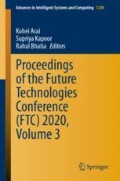Abstract
Vehicular Ad-Hoc Networks (VANETs) are key enablers for intelligent transportation systems (ITSs). In VANETs, vehicles are capable of communicating among others, and with roadside infrastructure. Nodes exchange messages via short-range communication to improve road safety and enhance traffic efficiency. To tackle VANETs security: Cryptography-based solutions are developed by the researchers. The Cryptography-based solution can protect VANETs from outside attacks. However, it is incapable of ensuring message reliability. This led to the emergence of Trust-based solutions, which aim to protect VANETs from insider attacks and confirm message reliability. Many trust models have been introduced. However, several schemes count on roadside infrastructure to confirm messages reliability. In this study, we introduce a novel self-reliant trust management model that ensures messages reliability based on nodes’ credit. Furthermore, it is decentralized and protects nodes’ privacy. The simulation results demonstrate the performance and security efficacy of the proposed system.
Access this chapter
Tax calculation will be finalised at checkout
Purchases are for personal use only
References
Kerrache, C.A., Lakas, A.A., Lagraa, N.A.: Detection of intelligent malicious and selfish nodes in VANET using threshold adaptive control. In: 5th International Conference on Electronic Devices, Systems and Applications (ICEDSA), pp. 1–4. IEEE, (2016)
Saini, R., Khari, M.: Defining malicious behavior of a node and its defensive methods in Ad Hoc network. Int. J. Comput. Appl. 20, 18–21 (2011)
Shaikh, R., Jameel, H., Dauriol, B., et al.: Group-based trust management scheme for clustered wireless sensor networks. IEEE Trans. Parallel Distrib. Syst. 20, 1698–1712 (2009)
Kerrache, C.A., Calafate, C.T., Cano, J.C., et al.: Trust management for vehicular networks: an adversary-oriented Overview. IEEE Access 4, 9293–9307 (2016)
Abdelgader, A.MS., Feng S.: Exploiting the physical layer security for providing a simple user privacy security system for vehicular networks. In: International Conference on Communication, Control, Computing and Electronics Engineering (ICCCCEE), pp. 1–6. IEEE, (2017)
Asl, F.R., Reza S.: SyNORM: symmetric non repudiated message authentication in vehicular ad hoc networks. In: IEEE 86th Vehicular Technology Conference (VTC-Fall), pp. 1–5. IEEE, (2017)
Zhang, J., Chen, C., Cohen, R.: Trust modeling for message relay control and local action decision making in VANETs. Secur. Commun. Netw. 6, 1–14 (2012)
Zhou, A., Li, J., Sun, Q., Fan, C., Lei, T., Yang, F.: A security authentication method based on trust evaluation in VANETs. EURASIP J. Wireless Commun. Networking 2015(1), 1–8 (2015)
Ltifi, A., Zouinkhi, A., Bouhlel, M.S.: A Cooperative trust management system for VANET integrating WSN technology. Int. J. Inf. Netw. Secur. (IJINS) 2, 392–402 (2013)
Shaikh, R.A., Alzahrani, A.S.: Intrusion-aware trust model for vehicular ad hoc networks. Secur. Commun. Netw. 7, 1652–1669 (2013)
Kumar, N., Chilamkurti, N.: Collaborative trust aware intelligent intrusion detection in VANETs. Comput. Electr. Eng. 40, 1981–1996 (2014)
Chen, Y.M., Wei, Y.C.: A beacon-based trust management system for enhancing user centric location privacy in VANETs. J. Commun. Netw. 15, 153–163 (2013)
Huang, Z., Ruj, S., Cavenaghi, M.A., Stojmenovic, M., Nayak, A.: A social network approach to trust management in VANETs. Peer-to-Peer Networking Appl. 7(3), 229–242 (2012)
Gurung, S., Lin, D., Squicciarini, A., Bertino, E.: Information-oriented trustworthiness evaluation in vehicular Ad-hoc networks. In: Network and System Security Lecture Notes in Computer Science, pp. 94–108 (2013)
Alam, M., Ferreira, J., Fonseca, J.: Intelligent Ttransportation Systems Dependable Vehicular Communications for Improved Road Safety. Springer, Cham (2018)
ETSI, E. 302 637-3 V1.3.0-Intelligent Transport Systems (ITS); Vehicular Communications; Basic Set of Applications. ETSI (2018)
Jaeger, A.: Weather Hazard Warning Application in Car-to-X Communication Concepts, Implementations and Evaluations. Springer, Darmstadt (2016)
Soleymani, S.A., Abdullah, A.H., Zareei, M., et al.: A Secure trust model based on fuzzy logic in vehicular Ad Hoc networks with fog computing. IEEE Access 5, 15619–15629 (2017)
Wang, Y., Duan, X., Tian, D., et al.: Throughput and Delay Limits of 802.11p and its Influence on Highway Capacity. Procedia – Soc. Behav. Sci. 96, 2096–2104 (2013)
Ahmed, R.A.: Fuzzy risk-based decision method for vehicular Ad Hoc networks. Int. J. Adv. Comput. Sci. Appl. 7(9), 54–62 (2016)
Veins Homepage. https://veins.car2x.org. Accessed 10 Jan 2019
OMNeT ++ Homepage. https://omnetpp.org Accessed 10 Jan 2019
SUMO Homepage. http://sumo.sourceforge.net. Accessed 07 Mar 2019
OpenStreetMap Homepage. http://openstreetmap.org. Accessed 07 Mar 2019
Ahmed, S.A., Ariffin, S.H., Fisal, N.: Overview of wireless access in vehicular environment (WAVE) protocols and standards. Indian J. Sci. Technol. 6, 4994–5001 (2013)
ITS Homepage. https://www.standards.its.dot.gov/Factsheets/Factsheet. Accessed 26 Apr 2019
Draper, A.M., Weissburg, M.J.: Impacts of global warming and elevated CO2 on sensory behavior in predator-prey interactions: a review and synthesis. Front Ecol Evol 7, 72 (2019)
Wu, X.R., Li, Y.P., Tu, S.X., et al.: Elevated atmospheric CO2 might increase the health risk of long-term ingestion of leafy vegetables cultivated in residual DDT polluted soil. Chemosphere 227, 289–298 (2019)
Author information
Authors and Affiliations
Corresponding author
Editor information
Editors and Affiliations
Rights and permissions
Copyright information
© 2021 Springer Nature Switzerland AG
About this paper
Cite this paper
Rai, I.A., Shaikh, R.A., Hassan, S.R. (2021). A Self-reliant Trust Management Model for VANETs. In: Arai, K., Kapoor, S., Bhatia, R. (eds) Proceedings of the Future Technologies Conference (FTC) 2020, Volume 3. FTC 2020. Advances in Intelligent Systems and Computing, vol 1290. Springer, Cham. https://doi.org/10.1007/978-3-030-63092-8_49
Download citation
DOI: https://doi.org/10.1007/978-3-030-63092-8_49
Published:
Publisher Name: Springer, Cham
Print ISBN: 978-3-030-63091-1
Online ISBN: 978-3-030-63092-8
eBook Packages: Intelligent Technologies and RoboticsIntelligent Technologies and Robotics (R0)

